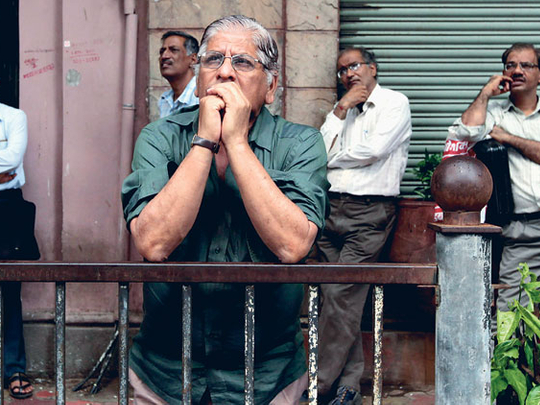
Mumbai: An increase in domestic interest rates and signs of a slower than expected global economic recovery should weigh heavily on Indian shares this week, as policymakers switch their focus to battling double-digit inflation that could stoke social unrest.
After the markets had closed on Friday, the Reserve Bank of India (RBI) raised its main short-term lending and borrowing rates by a quarter percentage point in the third such increase since mid-March to douse price pressures in the fast expanding domestic economy.
"The monetary measures should contain inflation and anchor inflationary expectations going forward, while not hurting the recovery process," the RBI said in a statement.
The trigger for the rate hike, which came ahead of the RBI's scheduled policy review on July 27, was the government's decision to deregulate pricing of petrol and trim subsidies on diesel, cooking gas and kerosene.
Higher fuel prices
Economists have calculated the higher fuel prices would accelerate the wholesale price-based annual inflation by around one percentage point to well above 11 percent when the June data is released around mid-July.
"The developments on the inflation front … raise several concerns," the RBI said. "Inflation increased to 10.2 per cent in May from 9.6 per cent in April. Food inflation and consumer price inflation remain at elevated levels." The central bank had earlier raised the repo and reverse repo rates by 25 basis points each in March and April, and is widely expected to go ahead with another hike at the end-July meeting which will take the total increase to a full percentage point as the RBI rolls back the loose policy set in place after the Lehman collapse nearly two years ago.
The RBI's main lending rate now stands at 5.50 per cent, and the reverse repo rate, at which it absorbs excess cash from the banking system, is at 4 per cent.
Because of a cash crunch in the banking system following an outflow of Rs1.4 trillion (Dh110 billion) towards 3G licences, broadband spectrum and tax payments, there is a greater possibility of the RBI's move being felt down the line sooner, although many bankers couched their responses in diplomatic language.
Keki Mistry, vice chairman of HDFC Bank, said there may not be an immediate increase in commercial bank interest rates, while State Bank of India Chairman O.P. Bhatt said lending and borrowing rates were unlikely to change until the end of the month. "There may be more policy action on July 27," Bhatt said. "We don't see interest rates getting impacted till then."
However, market pundits said the RBI's move would make money dearer and curtail consumer spending on a wide range of goods, from home appliances to cars and motorcycles and property.
"Surely, companies are going to feel the pinch in the coming months," said equity trader Mukesh Shah. "Earnings expectations will have to be toned down and to that extend you would expect some cooling in share prices."
The Sensex shed 0.7 per cent last week to 17,460.95 and should see a further correction as analysts begin to revise their price calls in the wake of tightening monetary policy at home and an uncertain outlook for the world economy.
Shah said a sluggish US jobs data and a report showing new orders for US factory products fell the sharpest since the depth of the recession would cast a gloom on foreign fund inflows that have been the driver for the Sensex's 4.5 per cent rise in June. "Wall Street has suffered the worst week in two months on the reports and it will be on top of the mind when trading begins here on Monday," Shah said.
The writer is a journalist based in India.












